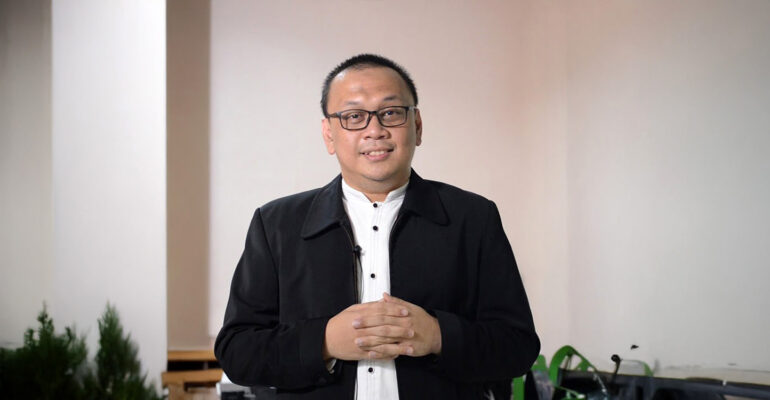IPB University Sharia Economist Encourages Optimization of ‘Green Zakat’ to Face Climate Crisis and Sustainable Development

The green zakat paradigm is starting to be echoed as an innovative solution in dealing with the global climate crisis. This concept encourages the distribution of zakat not only for consumptive assistance, but also to support green economy initiatives such as organic farming, renewable energy, and environmental rehabilitation.
This statement was delivered by Dr Irfan Syauqi Beik, Dean of the Faculty of Economics and Management (FEM) IPB University in an interview with Smart FM Radio (5/12).
Dr Irfan explained that the involvement of zakat institutions in climate change mitigation and adaptation is very important, given the increasingly real impact of the global climate crisis.
“If Indonesia does not immediately reduce carbon emissions, by 2070 the country risks losing up to 30 percent of its gross domestic product (GDP). Economic losses due to climate change can trigger wider social problems, ranging from increasing unemployment, lowering income to threats to food security,” he said.
In this context, he said, zakat, which has the potential to reach Rp327 trillion, can be a catalyst for green development through environmentally friendly programs. Dr Irfan also emphasized the importance of awareness among muzakki so that the wealth that is donated comes from sources that do not damage the environment.
“Zakat should encourage community empowerment through halal and environmentally friendly businesses. For example, in the culinary sector, do not only focus on halal certification, but it is also important to pay attention to aspects of plastic waste minimization and the use of clean energy,” he added.
He appreciated collaborative initiatives such as the Green Zakat Framework that involves various institutions, including Islamic banking such as Bank Syariah Indonesia (BSI), the National Amil Zakat Agency (Baznas), and international institutions such as the United Nations Development Programme (UNDP) that aim to provide guidelines for the implementation of zakat in the context of environmental sustainability.
“Collaboration involving the government, private sector, academics, community, and media is considered to be the key to succeeding the transformation of zakat into an instrument of sustainable development,” he said.
According to him, this framework includes definitions, stakeholder roles, and policy recommendations so that zakat not only reduces poverty but can become an instrument that supports environmental protection (hifzhul bi’ah), which is now the sixth maqasid sharia (sharia goal).
Furthermore, Dr Irfan underlined the importance of the role of zakat institutions as the first buyer of environmentally friendly products produced by mustahik. This is part of a comprehensive grassroots empowerment strategy, from upstream to downstream.
He also encouraged all zakat institutions and sharia institutions to adopt this framework and make it a joint movement.
“Green culture awareness must be built, not only as a concept, but also a culture that is carried out together. Green zakat is part of the transformation of zakat into an instrument of social and environmental change,” he concluded. (Fj) (IAAS/LAN)


